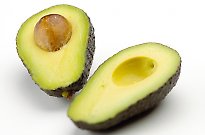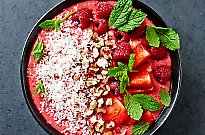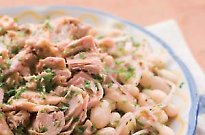
Benefits of a protein-rich, high fibre diet

Looking for a way of eating that will keep you feeling fuller for longer, reduce cravings and satisfy all of your nutritional needs? Look no further...
We’ve all heard that protein is important for a slim and healthy body. But high protein diets often lack fibre, and ample fibre is one thing a healthy body really can’t live without. Combine the two, and you’ve got a dynamite equation that will see you galloping through your day, as well as shedding unwanted kilos.
THE POWER OF PROTEIN
Protein is essential for healthy bodies as it repairs and rebuilds our muscles as well as our skin, organs, hair and nails. A diet that's rich in protein will reduce your appetite and keep your blood sugar stable, which means you won’t get highs and lows in energy levels that lead to cravings for processed sugary ‘treats’. When you’re choosing proteins rather than sugars or carbohydrates, your body uses your fat stores for energy rather than the carbohydrates you’ve recently consumed. However, for optimum health, you still need to include fibre-rich wholegrain carbohydrates in your diet.
Sources of protein include meat, fish, poultry, eggs and dairy as well as vegan-friendly tempeh, tofu, kelp, nori, beans, nuts, and seeds. While protein is vital for health, we don’t need as much as some celebrity types would have us think. If you’re eating too much animal protein you might not be consuming enough fruit and vegetables, which is a recipe for nutritional disaster (not to mention constipation). Too much protein can also overload your kidneys. And apart from anything, a very high protein, low carb diet is incredibly hard to stick to long term and can encourage bingeing. Balance your protein intake with plenty of fresh fruits, vegetables and whole grains, and ensure you’re drinking plenty of water.
THE FORCE OF FIBRE
Fibre is the structural part of the fruit, vegetable or grain that isn’t taken into your body for the purposes of nutrition – it’s excreted. This has hugely important implications on the healthy workings of your body.
Insoluble fibre makes your stools bulky and soft, which makes visiting the bathroom a lot more comfortable. It prevents constipation as well as some types of cancers. Insoluble fibre sources include high fibre cereals, brown rice, wholemeal pasta, grains and some fruits and vegetables.
Soluble fibre, on the other hand, binds to cholesterol and stops it being absorbed into the bloodstream, helping to prevent heart disease. Soluble fibre also slows the absorption of carbohydrates, meaning your blood sugar levels remain on a more even keel.
Soluble fibre sources include oats, beans, peas, and a wide range of fruits and vegetables.
All of this is bad news for your love handles, as diets high in fibre create lean bodies. Why? Because high fibre food is low calorie as you’re excreting most of it. Fibre also acts like a sponge and soaks up water inside your digestive system, which makes you feel fuller. These two fabulous effects have the wonderful result of weight loss, or weight maintenance, while reducing your risk of stroke, heart disease, cancer and diabetes.
Combining the two
Zoe Nicholson, dietitian at Figureate www.figureate.com.au says getting plenty of fibre and protein will soon have you beaming with health. She sings the praises of fibre.
“Fibre does many amazing things in our bodies. It can help with weight loss, lower cholesterol, control blood sugar and appetite, boost immune function and of course is necessary for good digestive and bowel health,” she says.
“When you think about what foods are high in fibre – fruits, vegetables and wholegrains, it’s not surprising a high fibre diet will have many health benefits, as along with the fibre you are getting lots of vitamins, minerals and antioxidants – all necessary for good health. As fruits and vegetables are low in calories, higher fibre diets can also assist with weight loss.”
She does warn against excess protein consumption.
“Higher protein diets tend to be higher in saturated fat, as even the leanest meat contains saturated fats, and this may contribute to high cholesterol,” she says.
“High protein (low carb) diets are often more expensive too, with meat and dairy being dearer than fresh fruits, vegies and most wholegrains. Energy levels can also be affected as glucose is the body’s primary fuel source. Also, inadequate intake of carbohydrate can lead to light-headedness, sugar cravings, difficulty concentrating and a general lack of energy.”Zoe says while most Australians get enough protein, we’re certainly not ahead in the fibre stakes.
The trick is to get the balance right – and if you’re eating enough fruit, vegetables, wholegrains, cereals, pulses and nuts with your lean meats, nuts and low-fat dairy – you’re doing pretty well.
Get more nutrition advice, find out about common food allergies and share your thoughts on Facebook.
Photo: Thinkstock


